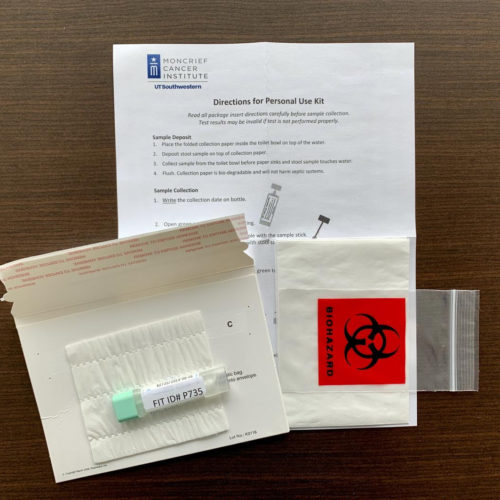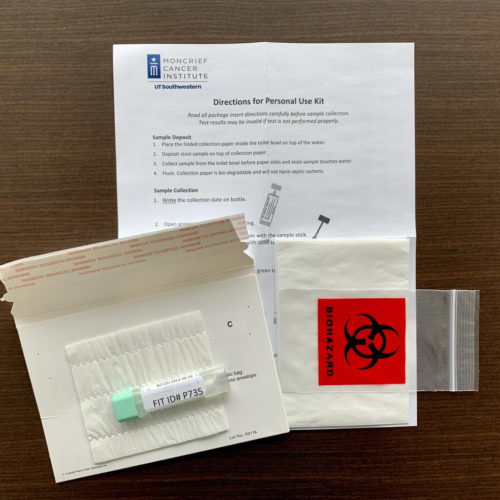UT SOUTHWESTERN MEDICAL CENTER IMAGE: FIT KITS ALLOW PATIENTS TO MAIL IN STOOL SAMPLES TO SCREEN FOR COLON CANCER. DALLAS – Sept. 8, 2020 – A program that asks patients to mail in stool samples to screen for colon cancer is an effective way to expand screenings to underserved and underinsured communities and offers an...
Tag: <span>Colon Cancer</span>
Dropping it in the mail: Best practices detailed for mail-in colon cancer screenings
UT SOUTHWESTERN MEDICAL CENTER IMAGE: FIT KITS ALLOW PATIENTS TO MAIL IN STOOL SAMPLES TO SCREEN FOR COLON CANCER. DALLAS – Sept. 8, 2020 – A program that asks patients to mail in stool samples to screen for colon cancer is an effective way to expand screenings to underserved and underinsured communities and offers an...
Stem cell function may explain higher colon cancer rate in males
INTERNATIONAL SOCIETY FOR STEM CELL RESEARCH IMAGE: A HIGHER INCIDENCE OF COLORECTAL CANCER HAS BEEN SEEN IN MALES. IN THIS ISSUE OF STEM CELL REPORTS, YU ET AL. DISCOVERED THE ROLE OF ANDROGEN IN PROLIFERATION AND DIFFERENTIATION. CREDIT: YU ET AL Colon cancers have a higher incidence in males, which is in part related to...
Colon cancer: Changes in gut bacteria may lead to new blood test
New research in mice and humans suggests that imbalances in gut bacteria could play a key role in promoting the development of colorectal cancer. The finding is helping researchers develop a blood test that may help them diagnose this form of cancer. Share on Pinterest Recent findings about the relationship between gut bacteria and colon cancer are helping researchers...
Cracking the colon code — new light shed on gut function
New insights into how the colon functions and expels contents FLINDERS UNIVERSITY New insights into how the colon functions and actually expels its contents have been revealed for the first time following decades of study by Flinders University researchers. It promises new diagnostics tools and treatments for gastrointestinal disorders to address problems with bowel movements...
Microbiome provides new clues to determining development of colon cancer
by George Washington University A mutant protein found in humans with colon cancer blocks a pathway that regulates proliferation and expansion of cells, increasing amounts of bacterial species associated with the development of colon cancer. These findings, showcasing the connection between bacteria in the microbiome and colon cancer, were published by a team of researchers from...
An inflammatory diet correlates with colorectal cancer risk
by IDIBELL-Bellvitge Biomedical Research Institute Researchers from the Molecular Mechanisms and Experimental Therapy in Oncology program (Oncobell) of the Bellvitge Biomedical Research Institute (IDIBELL) and the Catalan Institute of Oncology (ICO), together with the Biodonostia Health Research Institute (IIS Biodonostia), among others, have published in Nutrients the results of a multicenter study that unveils a correlation between inflammatory and antioxidant...
Colon cancer: Could yogurt prevent precancerous growths?
By Maria Cohut Fact checked by Jasmin Collier New observational research indicates an association between a lower risk of precancerous growths (adenoma) in the bowel and yogurt consumption patterns — in men, at least. Estimates from the National Cancer Institute (NCI) indicate that there will be 145,600 new cases of colorectal cancer in the United States...
Doctors, materials scientists hope a blood test will encourage more colon cancer screenings
by Nathan Collins, Stanford University Colorectal cancer is the second leading cause of cancer deaths in the U.S. and a growing problem around the world, but not because it’s a particularly difficult cancer to detect and halt. The problem, doctors and researchers believe, is that not enough people are being screened for early signs of the disease, either because they do not know the...
High-fructose corn syrup promotes colon tumor growth in mice
NEW YORK (March 21, 2019)–Consuming the equivalent of one can of soda per day caused mice predisposed to colon cancer to develop larger tumors, according to a study by Weill Cornell Medicine and NewYork-Presbyterian investigators. The study, published March 22 in the print issue of Science, shows how high-fructose corn syrup fuels the growth of colon...



